Dumoulin primed for 'day of suffering' on Mortirolo and Stelvio
Dutchman returns to scene of pre-Vuelta training camp
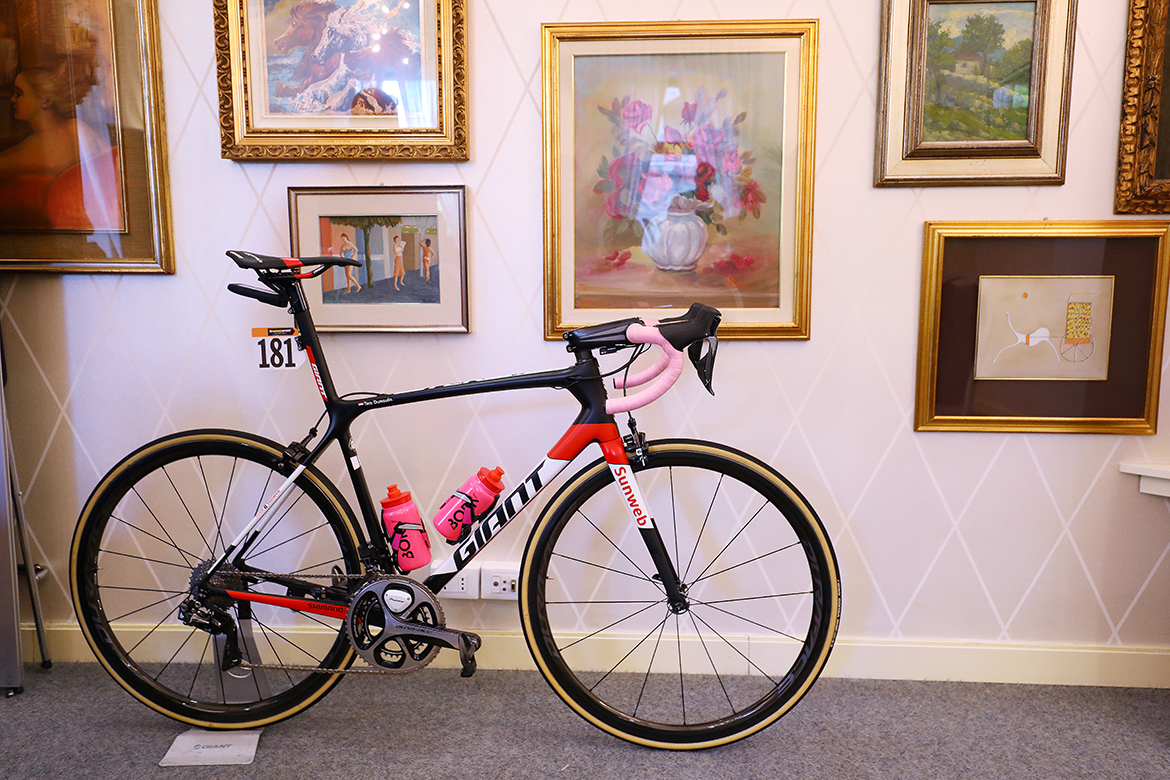
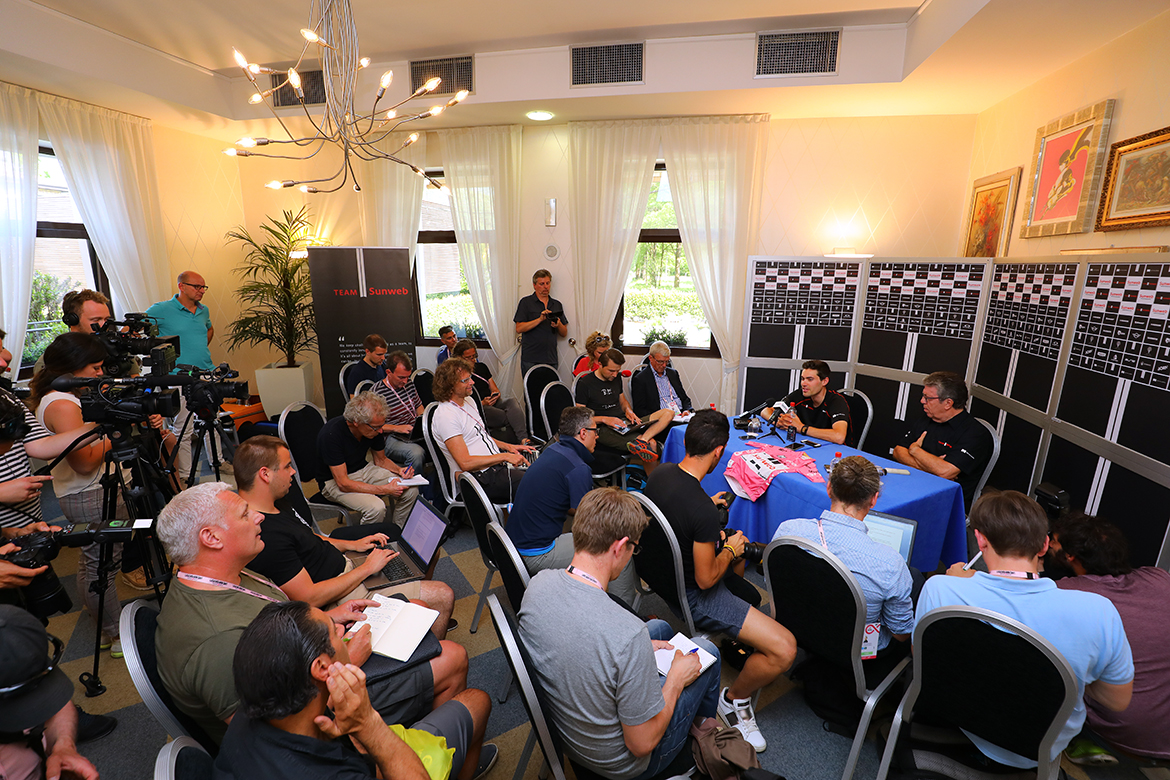
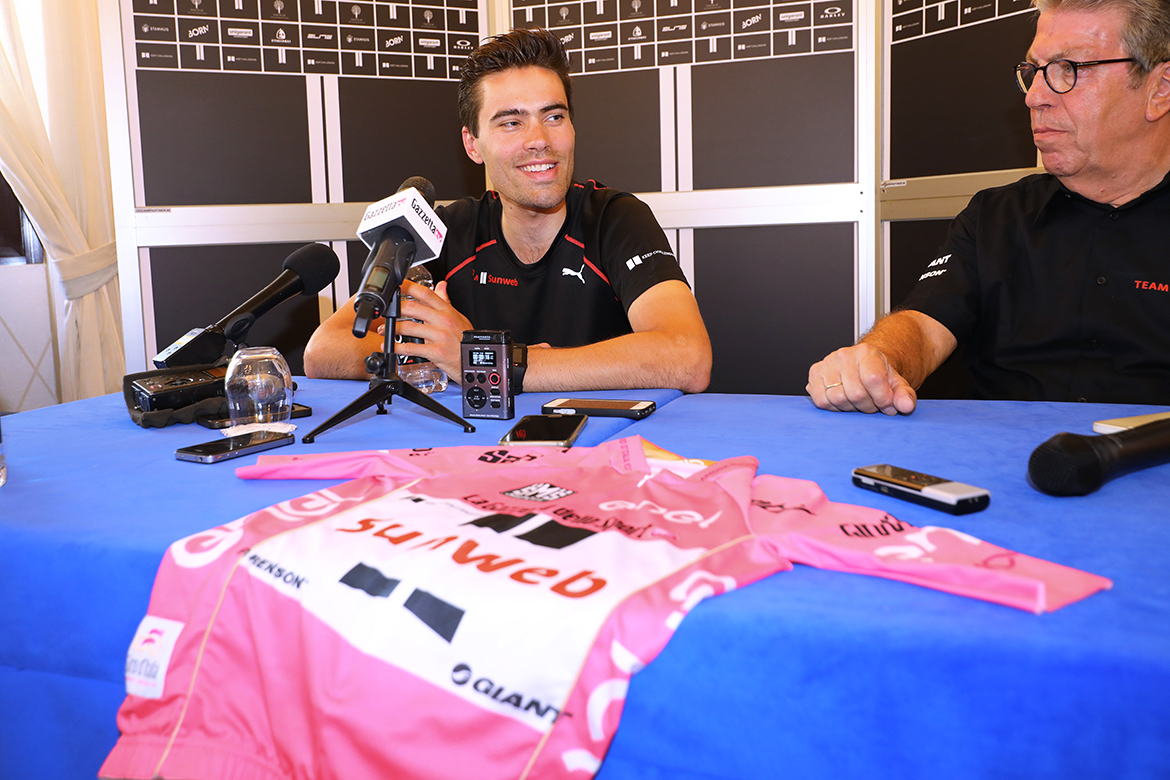
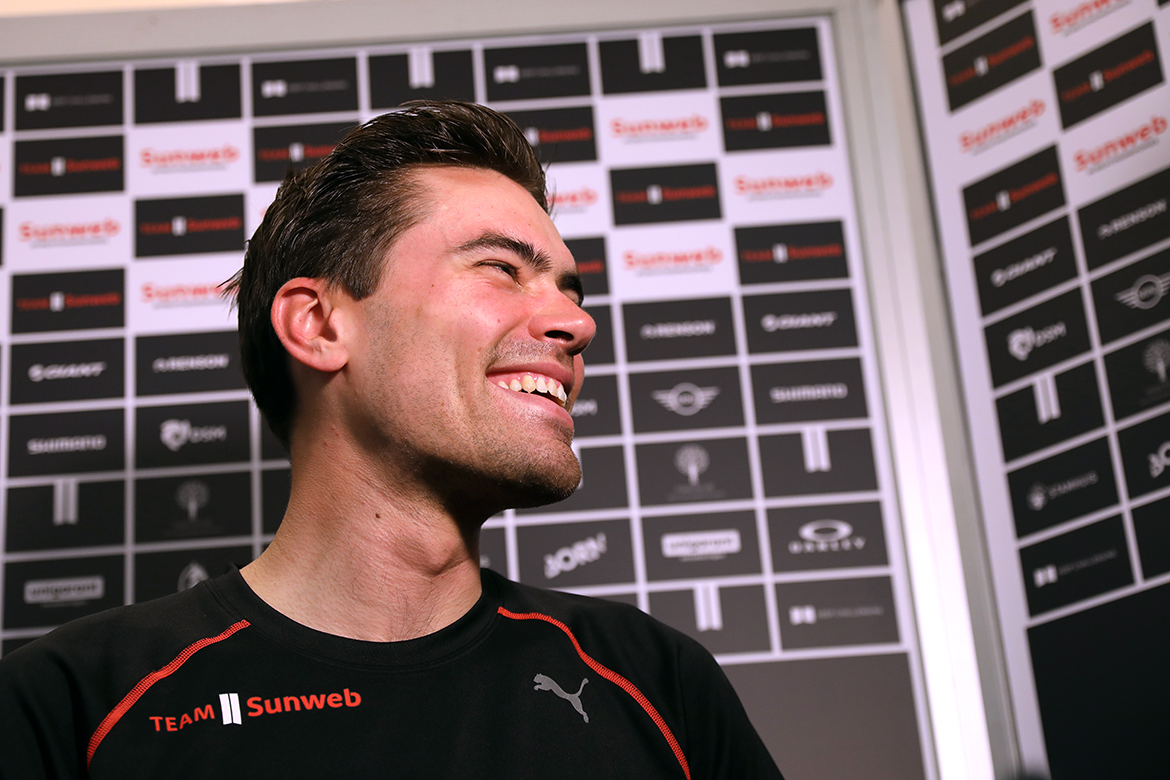
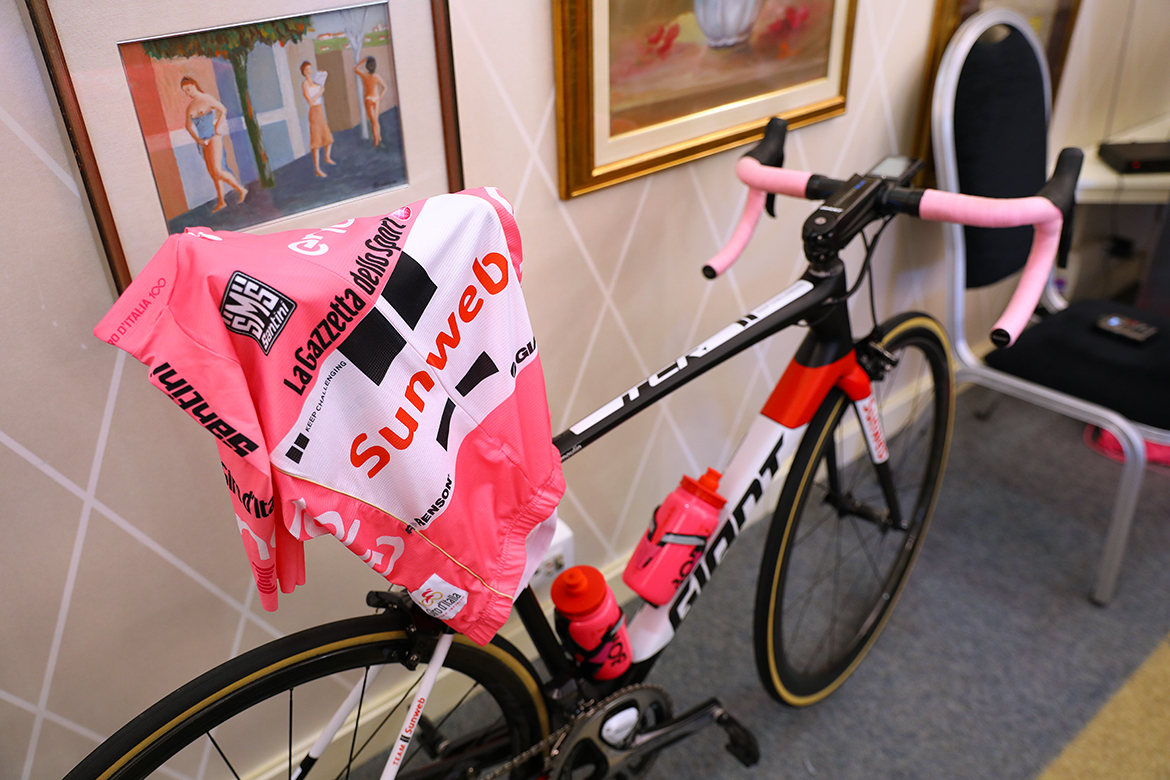
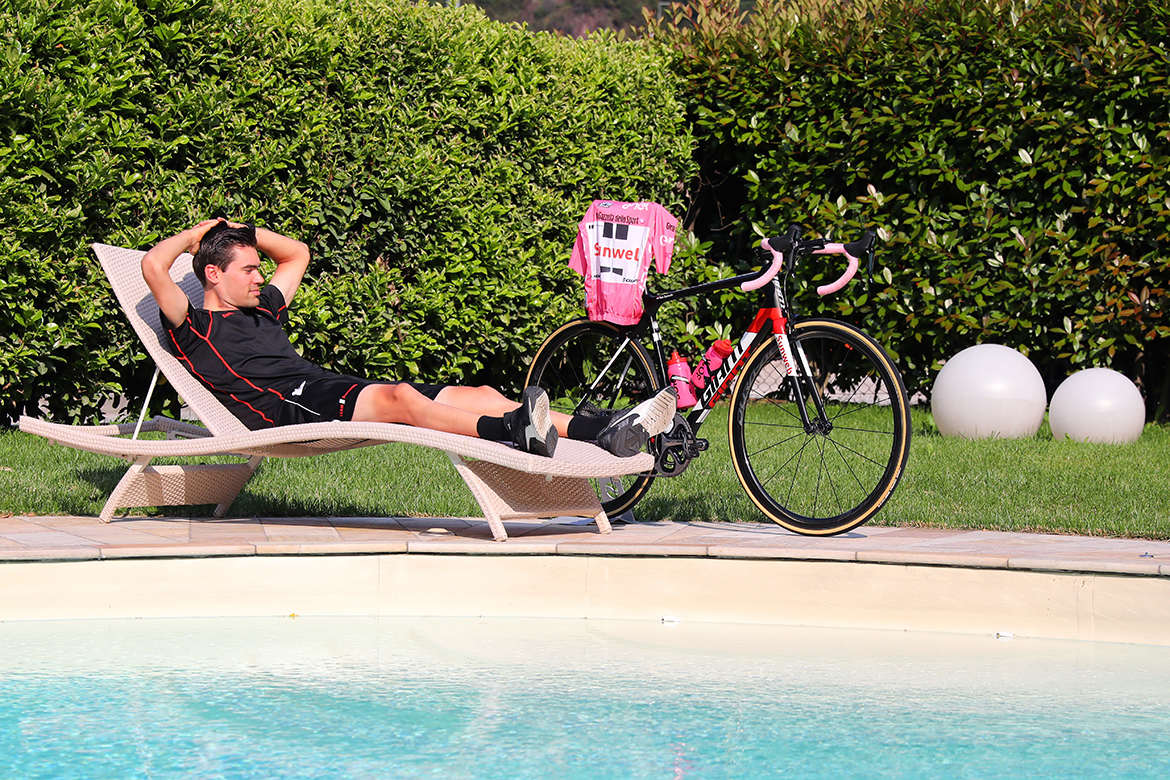
In the summer of 2015, after recovering from the dislocated shoulder he sustained when on the brink of becoming the first Dutchman to lead the Tour de France in 26 years, Tom Dumoulin travelled to Livigno to start out all over again.
Dumoulin: 'Rivals will attack me early and from all sides'
Giro d'Italia: Dumoulin triumphs atop Oropa
Dumoulin: 'The third week will be very different'
Giro d'Italia: Dumoulin shows his sporting side after Quintana crashes
Giro d'Italia analysis: Dumoulin dominant but not unbeatable
Giro d'Italia: Analysing the GC contenders ahead of the final week
For two weeks, Dumoulin slept at altitude and trained in solitude among the big beasts of the Italian Alps. For two weeks, the Gavia, Mortirolo and Stelvio were tackled in repetition. Dumoulin came down from the mountain a changed man. The following month, he surprised everybody – including himself – to lead the Vuelta a España until the penultimate weekend. A Grand Tour rider was born.
On Tuesday, Dumoulin returns to the mighty passes in very different circumstances. The upper slopes of the Stelvio will be banked by snow, and thousands of clamouring tifosi will make the road that bit less lonely. The maglia rosa will be on his shoulders, and he will be carrying a lead of 2:41 into the final week of the Giro d'Italia.
"I was up there alone for two weeks before the Vuelta in 2015 and I actually had a really good time," Dumoulin told a press conference in Boario Terme as the shadows lengthened on Monday afternoon. "I enjoyed myself. I did the big mountain passes, Gavia, Stelvio and Mortirolo, and it was quite special. I don't know the other stages this week, but I know tomorrow's stage."
As Movistar manager Eusebio Unzue put it earlier in the afternoon, the final third of the Giro features more than two-thirds of its real climbs. For all that, Dumoulin has an insurance policy in the form of the final time trial in Milan on Sunday, the next five days will offer the most stringent test of his aptitude for three-week racing. Indeed, Tuesday's tappone, 222 kilometres from Rovetta to Bormio by way of the Mortirolo, Stelvio and Umbrailpass, could alter the complexion of his Giro completely.
"It can be very hard or it can be very, very hard," Dumoulin smiled when asked what he expected from stage 16. "We just have to see. I've had some tough stages in the past, so we'll see how it's going to be. My competitors will definitely attack me and it will definitely be a day of suffering."
Victory in the Montefalco time trial helped Dumoulin to put daylight between himself and his rivals, and he topped up that already hefty advantage by claiming the summit finish at Oropa on Saturday to boot. Nairo Quintana (Movistar), second overall, is the most obvious challenger, but Thibaut Pinot (3rd at 3:21) and Vincenzo Nibali (4th at 3:40) also remain in contention.
The latest race content, interviews, features, reviews and expert buying guides, direct to your inbox!
"If I have a bad day tomorrow, then all my competitors are dangerous. If I lose three minutes, then suddenly they're all quite dangerous for a podium spot or victory," Dumoulin said. "It's impossible to say now who is the most dangerous, but Quintana is closest on GC and in the last two weeks, he has shown himself to be the best climber here, so I think he is the main rival."
Asked to nominate the rival he feared the most, Dumoulin was succinct: "I don't really fear my competitors."
If Dumoulin maintains his current level of performance through the final week of the Giro, of course, the identity of his biggest rival will likely be moot: the Dutchman will wear the maglia rosa in Milan. This is, however, only the second time that Dumoulin has raced a Grand Tour with an eye to the general classification. After dropping from first to sixth on the final mountain stage of the 2015 Vuelta, Dumoulin accepts that doubts remain over his ability to stay the course for the full three weeks.
"Yes, it's a question mark. But in preparing for this Giro, we tried to focus on preparing to face multiple climbs, and we did less racing beforehand, with the aim of being good in the third week," he said. "I tried to prepare as best as possible, but it's a question mark how I hold up in the third week."
Monstrous
Dumoulin's remarkable showing at Oropa, where he caught and later dislodged Quintana, was feted in some quarters as being reminiscent of Miguel Indurain – "I'm Tom Dumoulin, not Miguel Indurain," he said promptly – but drew a more nuanced reaction in others, with both Il Corriere della Sera and La Gazzetta dello Sport using the adjective "monstrous" to describe his performance.
"I see it as a compliment," Dumoulin said. "It was a very special day. I knew I had good legs. Laurens [ten Dam] actually came during the stage to me and said, 'I think you're good, eh,' and I said, 'Yeah, I think it will be alright.' But then you still have to find out on the climb itself how you really feel. I think I did a really good climb."
Asked if he felt the "monstrous" tag carried a connotation of mistrust, Dumoulin said: "Oh no. I don't think so. That's possible, but I don't think that they think like that."
The presence of three podium contenders from the Netherlands – Dumoulin, Bauke Mollema (Trek-Segafredo) and Steven Kruijswijk (LottoNL-Jumbo) – meant that there has been a sizeable Dutch contingent in the sala stampa from the start in Sardinia, and their number will only increase as Dumoulin draws closer to become the first of their countrymen to win a Grand Tour since Joop Zoetemelk's Tour de France victory of 1980. Dumoulin, however, carries the burden of history lightly.
"I don't care if my country is waiting for 20 years or 30 years. That's their problem," Dumoulin said jokingly. "I'm mostly riding for myself and my team, not for any other reason. I'm doing it because I like it and not because I feel the pressure of winning a Grand Tour after so many years – I don't even know how long it is. Why should I feel pressure? No. I don't care about that."

Barry Ryan was Head of Features at Cyclingnews. He has covered professional cycling since 2010, reporting from the Tour de France, Giro d’Italia and events from Argentina to Japan. His writing has appeared in The Independent, Procycling and Cycling Plus. He is the author of The Ascent: Sean Kelly, Stephen Roche and the Rise of Irish Cycling’s Golden Generation, published by Gill Books.